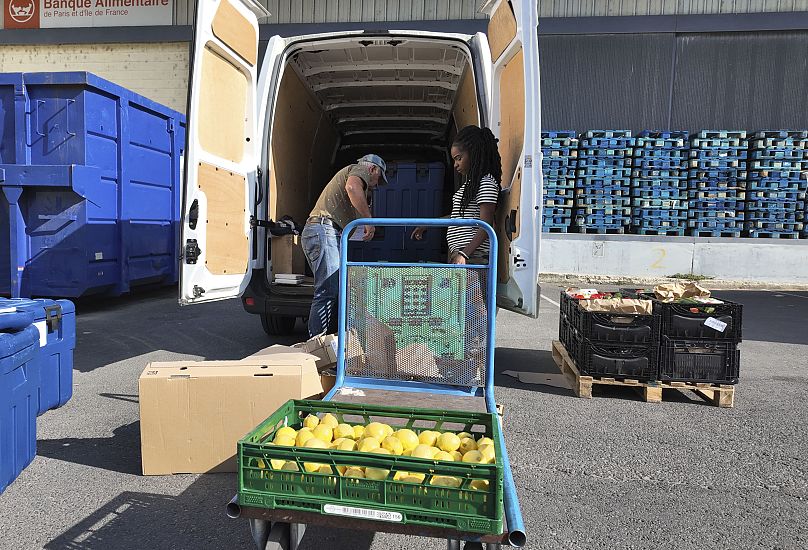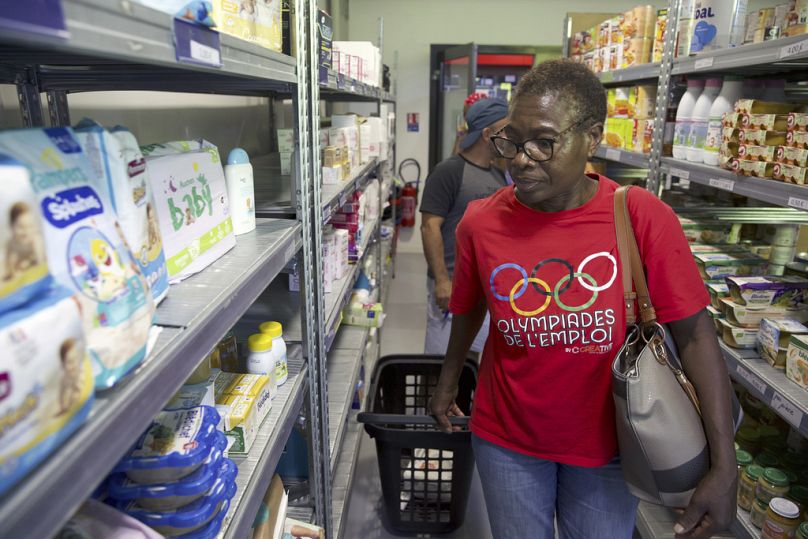Food that has gone uneaten by athletes and staff at the Olympic Games has been distributed to those in need in the French capital.
Over 30,000 tonnes of leftover food from the Olympic Village has been repurposed for food banks in Paris, according to event organisers.
Food that goes uneaten at the Games — by the athletes, the spectators and the workers — is helping those in need around the French capital, as part of an effort to cut down on waste and contribute to sustainability.
Paris 2024 organisers have long said the Games would be more environmentally friendly, including reusable dishes in the main restaurant at the athletes' village, greener construction and seats in venues made from recycled materials.
“This is part of the legacy that we’ve been working on since the beginning,” said Georgina Grenon, who oversees the Paris Games’ effort to reduce its carbon footprint by half compared to London in 2012 and Rio in 2016. “We’ve been working to try to change the way in which these Games are organised, both for us but also for other events. And food waste is one of those things.”
Food waste is a source of greenhouse gas emissions worldwide and even though it's not a huge source of emissions for the Olympics, Grenon said organisers “thought it was important to be particularly exemplary on this and lead the way on showing how to do it and showing it is possible.”
They’ve tried to reduce food waste both preventively when the menus were being drawn up, and during the Games by signing an agreement with three groups so that uneaten food is collected and redistributed.
About 40,000 meals are served each day during the Games to thousands of athletes from more than 200 countries and territories in the Olympic village.
Valerie de Margerie is president of Le Chainon Manquant, which translates to The Missing Link, one of the groups that is receiving food from the Olympic sites. She said the donations help address a pressing need because there are 10 million people in France who don't have enough to eat. At the same time, she said, the country wastes 10 million tonnes of food each year.
“That's the challenge, it's to say that we cannot continue to allow our trash cans overflow with quality products while there are people nearby who are unable to feed themselves adequately,” she said.
By Tuesday, the food bank had collected 30 tonnes of food from Olympic sites since the beginning of the Games, said Nicolas Dubois, who's in charge of the organisation's warehouse in suburban Gennevilliers.
Some of the bounty collected by the food bank was brought to a grocery store in Epinay-sur-Seine, a northern suburb of Paris, that sells food at deeply discounted prices.
“We take advantage of this place because it helps us, it helps us enormously,” said Jeanne Musaga, 64, who gets 900 euros a month in retirement payments, 500 euros of which goes to pay her rent.
“For those of us who don’t earn much, for a family that’s suffering, we come here to get food for the month,” she said. “Instead of buying from an expensive shop, we pay less here.”













